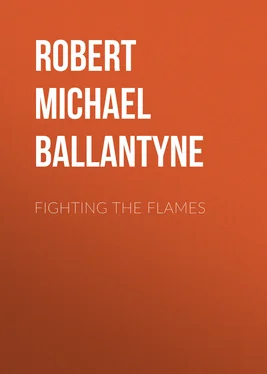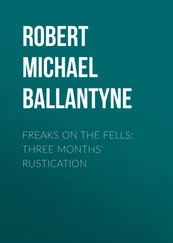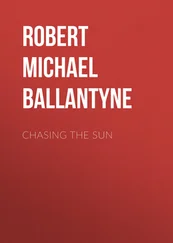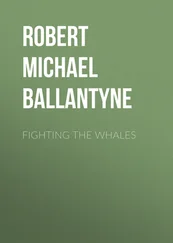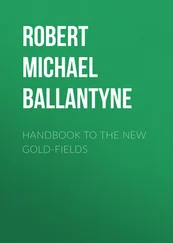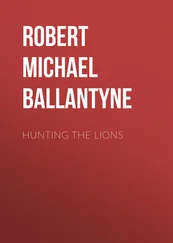Robert Michael Ballantyne - Fighting the Flames
Здесь есть возможность читать онлайн «Robert Michael Ballantyne - Fighting the Flames» — ознакомительный отрывок электронной книги совершенно бесплатно, а после прочтения отрывка купить полную версию. В некоторых случаях можно слушать аудио, скачать через торрент в формате fb2 и присутствует краткое содержание. Жанр: foreign_children, literature_19, foreign_antique, foreign_prose, на английском языке. Описание произведения, (предисловие) а так же отзывы посетителей доступны на портале библиотеки ЛибКат.
- Название:Fighting the Flames
- Автор:
- Жанр:
- Год:неизвестен
- ISBN:нет данных
- Рейтинг книги:4 / 5. Голосов: 1
-
Избранное:Добавить в избранное
- Отзывы:
-
Ваша оценка:
- 80
- 1
- 2
- 3
- 4
- 5
Fighting the Flames: краткое содержание, описание и аннотация
Предлагаем к чтению аннотацию, описание, краткое содержание или предисловие (зависит от того, что написал сам автор книги «Fighting the Flames»). Если вы не нашли необходимую информацию о книге — напишите в комментариях, мы постараемся отыскать её.
Fighting the Flames — читать онлайн ознакомительный отрывок
Ниже представлен текст книги, разбитый по страницам. Система сохранения места последней прочитанной страницы, позволяет с удобством читать онлайн бесплатно книгу «Fighting the Flames», без необходимости каждый раз заново искать на чём Вы остановились. Поставьте закладку, и сможете в любой момент перейти на страницу, на которой закончили чтение.
Интервал:
Закладка:
When William Willders reached the small door of Number 6, Poorthing Lane, and raised his hand to knock, the said door opened as if it had been trained to admit visitors of its own accord, and Miss Matty Merryon issued forth, followed by a bright blue-eyed girl of about twelve years of age.
“Well, boy, was ye comin’ here?” inquired Matty, as the lad stepped aside to let them pass.
“Yes, I was. Does Miss Tippet live here?”
“She does, boy, what d’ye want with her?”
“I want to see her, young ’ooman, so you’d better cut away up an’ tell her a gen’lm’n requests a few words private conversation with her.”
The little girl laughed at this speech, and Matty, addressing Willie as a “dirty spalpeen,” said he had better go with her to a shop first, and she’d then take him back and introduce him to Miss Tippet.
“You see I can’t let ye in all be yer lone, cushla; for what would the neighbours say, you know! I’m only goin’ to the toy-shop, an’ won’t kape ye a minit, for Miss Emma don’t take long to her bargains.”
Willie might probably have demurred to this delay; but on hearing that the blue-eyed girl wanted to make purchases, he at once agreed to the proposal, and followed them into the toy-shop.
David Boone, who stepped out of the back-shop to serve them, was, if we may say so, very unlike his trade. A grave, tall, long-legged, long-nosed, raw-boned, melancholy-looking creature such as he, might have been an undertaker, or a mute, or a sexton, or a policeman, or a horse-guardsman, or even a lawyer; but it was the height of impropriety to have made him a toy-shopman, and whoever did it had no notion whatever of the fitness of things. One could not resist the idea that his clumsy legs would certainly upset the slender wooden toys with which the floor and counters were covered, and his fingers seemed made to break things. The figure of Punch which hung from the ceiling appeared inclined to hit him as he passed to and fro, and the pretty little dolls with the sweet pink faces, and very flaxen hair and cerulean eyes were evidently laughing at him.
Nevertheless, David Boone was a kind-hearted man, very fond of children, and extremely unlike, in some respects, what people imagined him at first sight to be.
“Well, Miss Ward, what can I supply you with to-day?” said he blandly.
“Please, Mr Boone, I want a slate and a piece of slate-pencil.” Emma looked up with a sweet smile at the tall shopman, who looked down upon her with grave benignity, as he produced the articles required.
“D’you kape turpentine?” said Matty, as they were about to quit the shop.
Boone started, and said almost testily, “No, I don’t . Why do you ask?”
“Sure, there’s no sin in askin’,” replied Matty in surprise at the man’s changed manner.
“Of course—of course not,” rejoined Boone with a slight look of confusion, as he made a sudden assault with his pocket-handkerchief on the cat, which was sleeping innocently in the window; “git out o’ that, you brute; you’re always agoin’ in the winder, capsizin’ things. There! you’ve been an’ sat on the face o’ that ’ere wax doll till you’ve a’most melted it. Out o’ that with you! No, Miss Merryon,” he added, turning to the girl with his wonted urbanity, “I don’t keep turpentine, and I was only surprised you should ask for it in a toy-shop; but you’ll get it of Mr White next door. I don’t believe there’s anythink in the world as he can’t supply to his customers.”
David Boone bowed them out, and then re-entered the back-shop, shaking his head slowly from side to side.
“I don’t like it—I don’t even like to think of it, Gorman,” he said to a big low-browed man who sat smoking his pipe beside the little fireplace, the fire in which was so small that its smoke scarcely equalled in volume that of the pipe he smoked: “No, I don’t like it, and I won’t do it .”
“Well, well, you can please yourself,” said Gorman, knocking the ashes out of his pipe, and placing it in his vest pocket as he rose and buttoned his thick pea-jacket up to the chin; “but I’ll tell you what it is, if you are a descendant of the hunter of the far west that you boast so much about, it’s precious little of his pluck that you’ve got; an’ so I tell ’ee to your face, David Boone. All I’ve got to say is, that you’d better be wise and take my advice, and think better of it.”
So saying, Gorman went out, and slammed the door after him.
Meanwhile, Miss Matty Merryon, having purchased a small phial of turpentine, returned to Number 6, and ushered Willie Willders into the presence of her mistress.
Miss Emelina Tippet was neither tall nor stiff, nor angular nor bony; on the contrary, she was little and plump, and not bad-looking. And people often wondered why Miss Tippet was Miss Tippet and was not Mrs Somebody-else. Whatever the reason was, Miss Tippet never divulged it, so we won’t speculate about it here.
“A note, boy, from Mr Auberly?” exclaimed Miss Tippet, with a beaming smile; “give it me—thank you.”
She opened it and read attentively, while Master Willie glanced round the parlour and took mental notes. Miss Emma Ward sat down on a stool in the window, ostensibly to “do sums,” but really to draw faces, all of which bore a strong caricatured resemblance to Willie, at whom she glanced slyly over the top of her slate.
Matty remained standing at the door to hear what the note was about. She did not pretend to busy herself about anything. There was no subterfuge in Matty. She had been Miss Tippet’s confidential servant before entering the service of Mr Auberly, and her extremely short stay in Beverly Square had not altered that condition. She had come to feel that she had a right to know all Miss Tippet’s affairs, and so waited for information.
“Ah!” exclaimed Miss Tippet, still reading, “yes; ‘get him a situation in your brother’s office,’ (oh, certainly, I’ll be sure to get that); ‘he seems smart, I might almost say impu—’ Ahem! Yes, well—.”
“Boy,” said Miss Tippet, turning suddenly to Willie, “your name is William Willders, I believe?”
“Yes, ma’am.”
“Well, William, Mr Auberly, my relative, asks me to get you into my brother’s—my brother’s, what’s ’is name—office. Of course, I shall be happy to try. I am always extremely happy to do anything for—yes, I suppose of course you can write, and, what d’ye call it—count—you can do arithmetic?”
“Yes, ma’am,” replied Willie.
“And you can spell—eh? I hope you can spell , Edward, a—I mean Thomas—is it, or William?”
Miss Tippet looked at Willie so earnestly and put this question in tones so solemn that he was much impressed, and felt as if all his earthly hopes hung on his reply, so he admitted that he could spell.
“Good,” continued Miss Tippet. “You are, I suppose, in rather poor circumstances. Is your father poor?”
“He’s dead, ma’am; was drowned.”
“Oh! shocking, that’s very sad. Was your mother drowned, too?”
“No, ma’am, she’s alive and well—at least she’s well for her , but she an’t over strong. That’s why I want to get work, that I may help her; and she wants me to be a clerk in a office, but I’d rather be a fireman. You couldn’t make me a fireman, could you, ma’am?”
At this point Willie caught Miss Ward gazing intently at him over the top of her slate, so he threw her into violent confusion by winking at her.
“No, boy, I can’t make you a fireman. Strange wish—why d’you want to be one?”
“’Cause it’s such jolly fun,” replied Willie; with real enthusiasm, “reg’lar bangin’ crashin’ sort o’ work—as good as fightin’ any day! An’ my brother Frank’s a fireman. Such a one, too, you’ve no notion; six fut four he is, an’ as strong as—oh, why, ma’am, he could take you up in one hand, ma’am, an’ twirl you round his head like an old hat! He was at the fire in Beverly Square last night.”
Читать дальшеИнтервал:
Закладка:
Похожие книги на «Fighting the Flames»
Представляем Вашему вниманию похожие книги на «Fighting the Flames» списком для выбора. Мы отобрали схожую по названию и смыслу литературу в надежде предоставить читателям больше вариантов отыскать новые, интересные, ещё непрочитанные произведения.
Обсуждение, отзывы о книге «Fighting the Flames» и просто собственные мнения читателей. Оставьте ваши комментарии, напишите, что Вы думаете о произведении, его смысле или главных героях. Укажите что конкретно понравилось, а что нет, и почему Вы так считаете.
